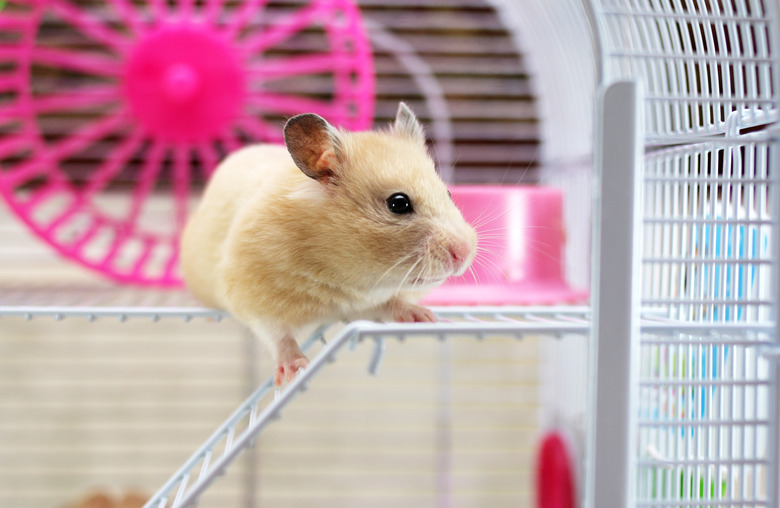Allergies To Hamsters
When you think about pet allergies, hamsters may not come to mind, but people can be allergic to hamsters the same way they are allergic to cats and dogs. Pet allergies can cause nasal, eye, skin, and respiratory symptoms. These symptoms vary in type and severity from one person to another. A person who is allergic to hamsters may be able to live in the same home with one without too much suffering, as there are several things you can do to help reduce exposure to the hamster's dander, saliva, and urine.
Symptoms of hamster allergy
Symptoms of hamster allergy
If you are allergic to hamsters, you may experience skin, nasal, eye, and respiratory symptoms. Some common symptoms of allergies include watery eyes, itchy eyes, runny nose, itchy nose or throat, coughing, itchy skin, hives (red, raised patches of skin), facial pressure and pain, sneezing, and postnasal drip.
If you have asthma, you may also experience related conditions, such as wheezing, breathing difficulties, and pain or tightness in your chest. You may also wake up frequently at night due to coughing, wheezing, or shortness of breath.
Cause of hamster allergies
Cause of hamster allergies
Your immune system creates antibodies that protect you from things that may make you ill. When you have an allergic reaction, your immune system creates antibodies against your particular allergen, something your immune system mistakenly believes is harmful to you. If you are allergic to hamsters, you may react to their dander, saliva, and urine.
A hamster may actually be a good pet to have in a home with an allergy sufferer. That's because a hamster spends most of his time in his cage. Thus, a hamster's dander and urine are typically confined to one small area within the home.
Medical treatment for people allergic to hamsters
Medical treatment for people allergic to hamsters
If you believe you are allergic to hamsters, talk to your doctor about it. She may refer you to an allergist for allergy testing to confirm your suspicion. Your doctor may prescribe medication to help reduce allergy symptoms. She may prescribe antihistamines, decongestants, corticosteroids, or leukotriene modifiers to help alleviate your allergies.
Discuss the benefits and possible side effects of medications with your doctor during your decision-making process. Immunotherapy, commonly referred to as allergy shots, is another option for treating allergies medically. Allergy shots train your immune system to stop responding to the allergen, in this case hamster dander, urine, and saliva.
Reduce your exposure to allergens
Reduce your exposure to allergens
For many people, rehoming a pet isn't an option. If that's the case for you, there are some steps you can take to reduce your exposure to your hamster's dander, saliva, and urine.
Keep your hamster in a room you don't frequent, such as a spare bedroom. If you have carpeting in your hamster's room, replace it with tile, vinyl, linoleum, or wood flooring instead as these types of floors harbor fewer pet allergens than carpet. You may want to replace other allergen-harboring furnishings in your hamster's room, such as curtains, horizontal blinds, and upholstered furniture.
Use high-efficiency particulate air (HEPA) filters in your home's heating and cooling systems. Place an air purifier with a HEPA filter in your hamster's room to decrease airborne allergens. When possible, use statically charged cleaning products, like Swiffers, and wet cleaning supplies, such as mops and damp cloths, to clean your hamster's room since these products effectively trap and remove allergens.
Cleaning your hamster's cage
Cleaning your hamster's cage
If possible, have another family member clean your hamster's cage. Clean your hamster's cage and replace her bedding once or twice a week to keep allergens from accumulating. If you must clean your hamster's cage yourself, wear disposable gloves and a dust mask. Wash your hands thoroughly after interacting with your hamster or cleaning her cage.
